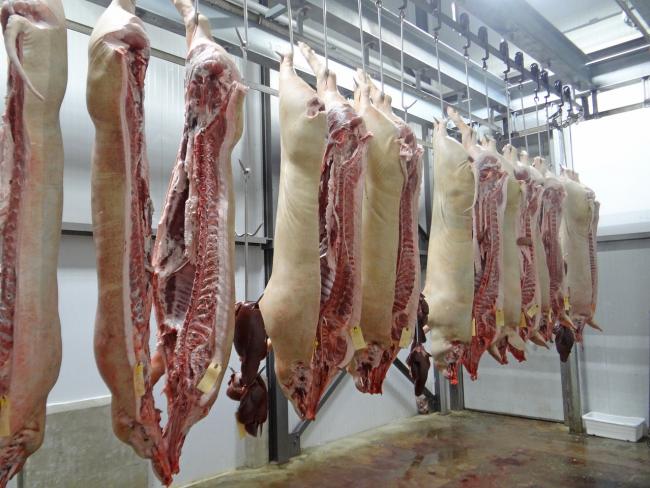25 April 2023

Pork products do not always come from where the producer says. Image BlackRIv via Pixabay.
At the end of March Farmers Weekly journalist Abi Kay revealed that British farmers were being ripped off by an industrial-scale country of origin fraud whereby a food manufacturer was passing off huge quantities of foreign pork as British.
And these criminal practices have been going on for two decades. In addition, the processor has been accused by former employees of “washing” hams that are visibly off or mixing rotting pork with fresh product for further processing. Meat processed by the company ended up in ready meals and other produce sold in stores including Tesco, Asda, Coop, Morrisons and Marks and Spencer.
Criminal
The method utilised by this criminal network would involve the processor buying a relatively small volume of British meat from a retailer-approved supplier, then using the traceability information from this delivery for all the pork products it made in that week – with most of the meat coming from elsewhere in the world. A former employee has claimed that at one point EU bacon medallions were being bought at £1 a kilogram and sold on as British for about £12.
Since the revelations hit the public domain, the regulator, the Food Standards Agency (FSA), has used the existence of a live criminal investigation to keep a very low profile. It has been keen to put the onus on others, saying, “As a national regulator, we are the last line of defence. At a time when the cost pressures and other challenges mean the risk of food fraud might be increasing, it is vital that everyone involved in the food system remains extra vigilant to ensure that food is safe and what it says it is.”
No apology
There’s no hint of an apology to the British farmers who have suffered financial losses because of failure to address this criminal activity. Our farmers have been subject to strict controls, while foreign imports – often poor quality, and raised under lower welfare standards – have effectively had carte blanche.
‘The regulator knew about this in 2020.’
It is clear the regulator knew about this activity in 2020. One of the sources to the Farmers Weekly investigation claimed to have sent photographs and information to the FSA several years earlier.
The Department for Exiting the European Union was set up by the government on 14 July 2016, a few weeks after the vote to leave the EU. It would have been reasonable to expect some consideration of import controls and food.
Belated
Yet nothing happened during the protracted negotiations with the EU – and not even once they were concluded. The Government belatedly started a consultation on import controls on 4 April 2023 – the week after news of this pork scandal broke!
The draft Target Operating Model described in that consultation proposes implementation of controls through three major milestones. The first of these will be on 1 October 2023 with “The introduction of health certification on imports of medium risk animal products, plants, plant products and high-risk food (and feed) of non-animal origin from the EU.”
Enforcement
But any enhanced regulation is unlikely to combat international food crime without skilled workers to enforce it. The primary responsibility for enforcing food safety, labelling and standards regulation lies with local authorities
Trading standards officers and environmental health officers inspect food businesses, collect samples and request testing. And the science of testing is quite powerful. For example, measuring the ratio of carbon isotopes in a sample can indicate whether an animal has been grass-fed (Britain) or corn-fed (US).
‘Testing can’t work if inspectors are unavailable.’
But sophisticated testing cannot take place if the front line staff who collect samples are not available. In 2019 their trade union, Unison, conducted a survey of local authorities’ environmental staff departments. The key findings were firstly, that environmental health budgets measured by population had more than halved over the decade – falling by nearly 53 per cent between 2009 and 2018.
Secondly, Unison found that enforcement visits by environmental health officers had dropped by nearly 50 per cent over the decade. And “programmed inspections”, or announced visits to businesses, had fallen by 40 per cent over the same period.
The report accurately predicted the outcome of these cuts would be a growth in food fraud and illness, which will continue to rise unless these reductions in budgets are reversed.
